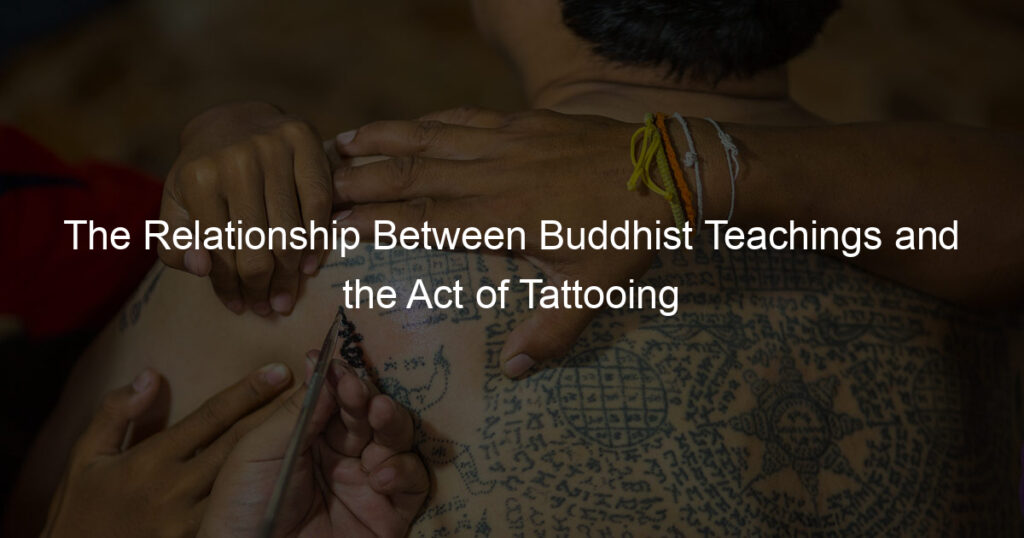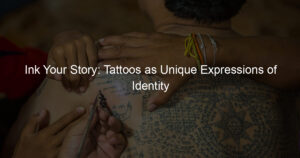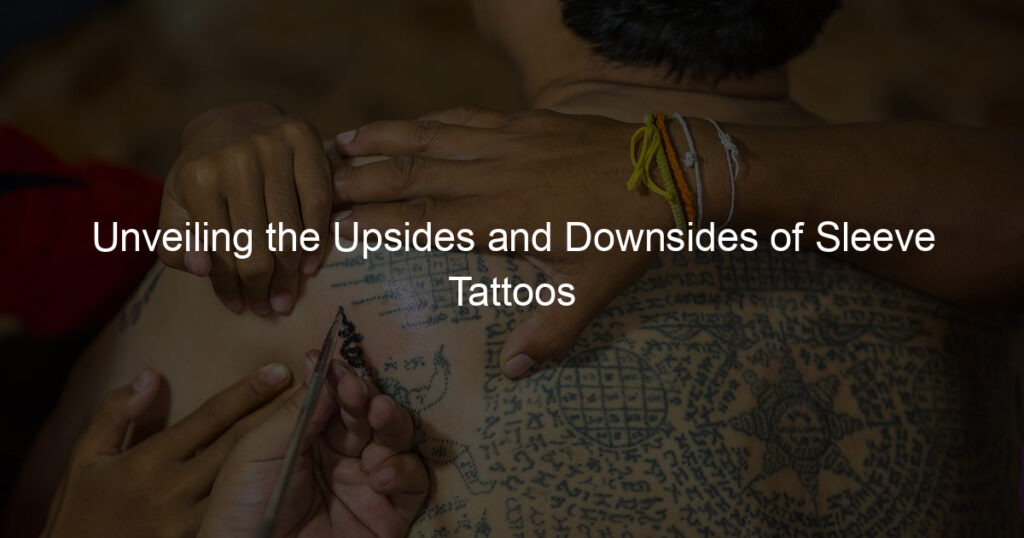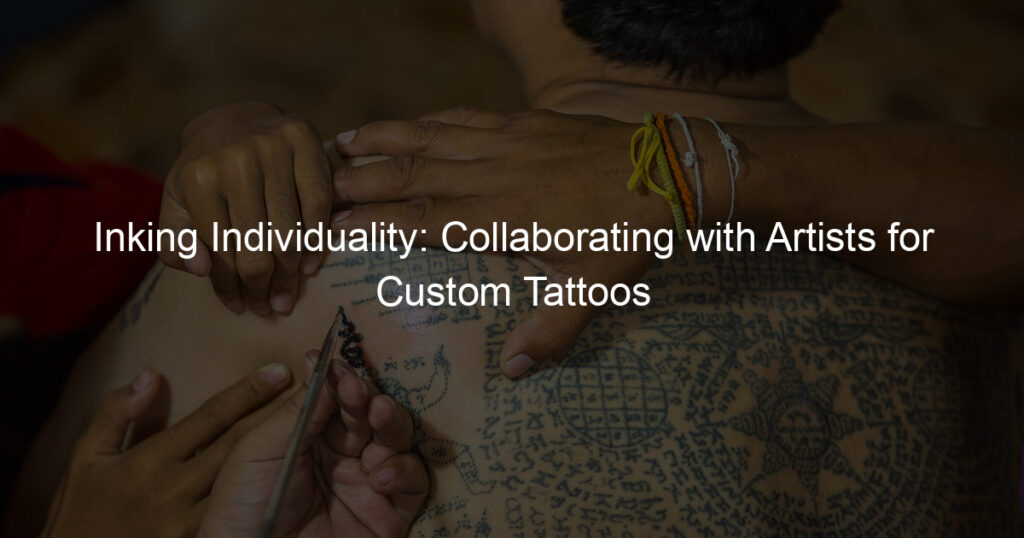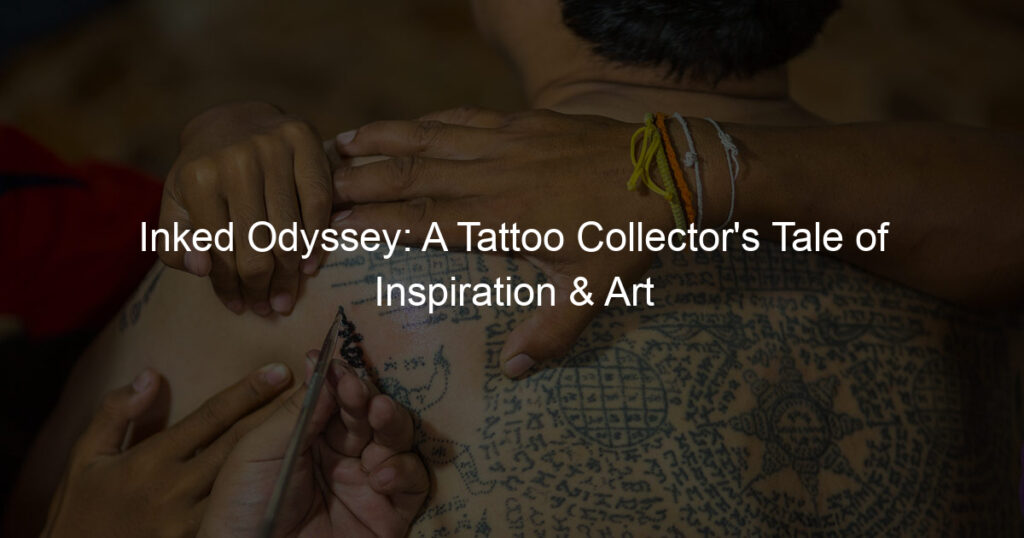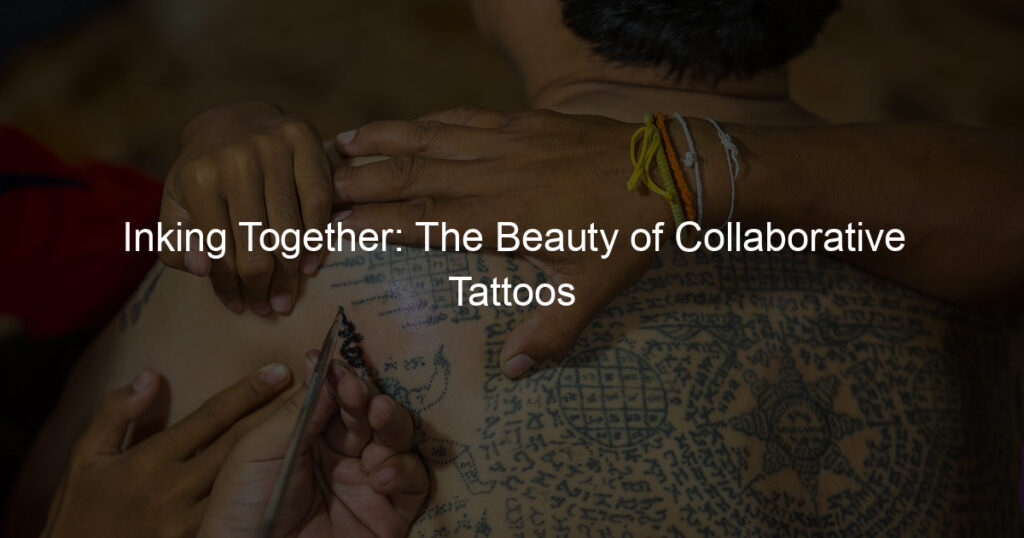Throughout history, tattooing has been associated with a wide range of cultural practices and traditions.
In some cultures, tattoos were seen as a mark of status or achievement, while in others they were considered to be a form of body art with religious or spiritual significance.
More recently, tattooing has become increasingly popular as a means of self-expression and individualization. While the act of tattooing may vary from culture to culture, certain Buddhist teachings can provide insights into the motivations and meanings behind this ancient practice.
What does Buddhism say about tattoos?
Buddhism and tattoos have a rather interesting history. There is no consensus on how to interpret religious texts, so whether or not Buddhism allows tattooing has been a topic of debate for centuries.
The Buddha himself never mentioned tattoos in his teachings, yet several of his followers were known to have carried out this practice.
For some Buddhists, tattoos are seen as a form of self-expression and art, while others view it as a state of impermanence that should be reflected upon.
Although there is disagreement within the religion, Buddhists largely agree that it is up to every person’s own beliefs and discretion when it comes to getting tattoos.
As such, many who are spiritual turn to tattoos to express their artistic perspective or meditative experience regarding life and death–and the universal truth between them both.
What do Buddhist teachings relate to?
Buddhist teachings are based on the Four Noble Truths, which are essential to understanding the fundamental building blocks of Buddhism.
These teachings focus on the idea that life is characterized by suffering and dukkha and that this state of existence can be ended through the right Understanding and employing ethical behavior such as following the Eightfold Path.
This path consists of going against greed, ill-will, and delusion to live with an attitude of mindfulness, moral discipline, patience, energy, meditation, wisdom, and understanding. These concepts are believed to bring people clarity and peace as they strive for spiritual awakening.
Throughout its long history, Buddhism has spread around the world and many aspects of it have been adopted by different cultures in the form of rituals, beliefs, and traditions.
Ultimately Buddhist teachings focus on living a good life free from suffering and the universal truth behind human experience.
What is the significance of tattooing?
Tattooing is a form of art and expression that has been around for centuries. It’s seen as a way of self-expression, and to carry a special message or meaning.
We, humans, tend to leave our mark on the world in some manner or another, and tattoos provide a way for us to do this. Not only does it have a deep personal significance, but tattooing can also be used as decoration or simply as a way to make ourselves look more attractive.
It carries with it cultural implications too, particularly when used to commemorate the life of someone who was important in your life or when partaking in rituals that signify your passage into adulthood.
Whatever its purpose is, there’s no denying that tattooing will remain an important part of many cultures around the world for years to come.
What are the teachings in Buddhism that are related to the connection of the body and soul?
Buddhism teaches that the combination of body and soul is what makes up a person. According to Buddhism, the physical body and spiritual soul are inseparable from each other; both the body and soul have an important role in creating a human being.
Buddhists believe that having a healthy balance between the two parts will lead one to enlightenment. This means engaging in physical activities such as meditation and engaging in activities with proper mindfulness and inner stillness as well.
Ultimately, Buddhists strive to come to terms with their bodies and souls, allowing them to truly understand the virtues such as compassion, wisdom, love, and forgiveness, ultimately bringing them closer to enlightenment.
What are Buddhist tattoos called?
Buddhist tattoos are becoming incredibly popular these days, especially with the growing popularity of Eastern cultures and religions.
They have a specific name – Sak Yant Tattoos – which are usually traditional or spiritual tattoos originating from South and Southeast Asia. These sacred tattoos take various forms and embody various meanings based on their particular design.
In Thailand, for example, many of the Sak Yant Tattoos will feature the image of a tiger to symbolize protection. Others feature images of the Buddhist deity Ganesh, while others might carry symbols related to religious teachings, such as prayers and mantras from the Dharma tradition.
These tattoos not only add beauty to the one wearing them but also come with spiritual significance that can last for eternity!
Which religion allows tattoos?
Beliefs surrounding tattoos vary widely; some religious groups tolerate them, while others condemn them. Many religions traditionally intertwine body markings and faith – according to Christian beliefs, a tattoo is forbidden in the Bible as stated in Leviticus 19:28.
Today, attitudes have changed and many Christians accept tattooing as long as the person’s intentions are heartfelt and done for personal reasons rather than to provoke or divide communities.
Conversely, Buddhism encourages getting a Sak Yan, the traditional Chakma tattoo given to mark major milestones or life events.
In addition, followers of Islam may also get small tattoos for decorative purposes. While Jewish law does not officially endorse tattooing, modern rabbis often allow them if performed for health-related reasons such as reconstructive surgery or for medical alert symbols.
Ultimately, one should always respect their own culture when deciding whether or not to get a tattoo; what’s allowed in one religion may be strictly prohibited by another.
Closing Thoughts
Though it is tempting to see tattooing as a superficial or vain act, its history runs much deeper. Buddhist teachings have long advised against the practice of mark-making on the body, and yet many Buddhists today choose to engage in this very act.
Whether we see it as a rebellion against religious authority, an attempt to connect with our spiritual heritage, or simply as a way to express ourselves, tattooing occupies a complex place in the modern world.
As we move forward into an increasingly globalized and interconnected society, it will be interesting to see how these ancient traditions adapt and change along with us.

